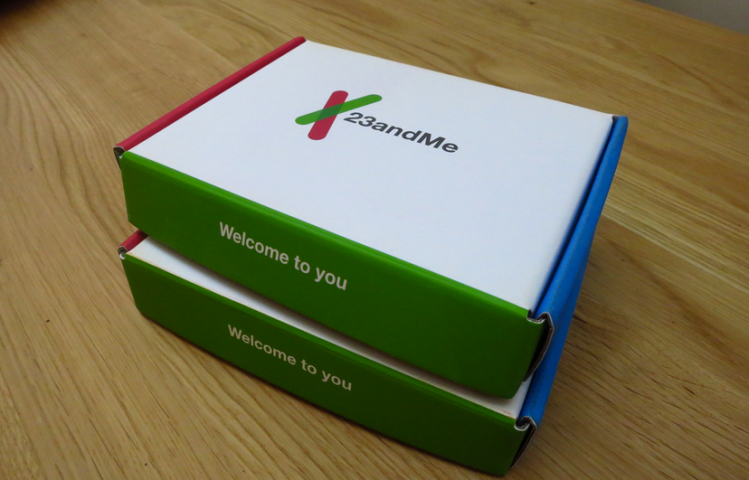What do the experts say?
Professors like Nita Farahany, who specializes in genome sciences and policy and law at Duke University, is far more sympathetic to 23andMe. She argued on KQED’s “Forum” talk show earlier this week that we’ll see far more people getting trained to be genetic counselors in the near future. Farahany, who ordered a 23andMe test for her family, believes that it’s good for patients to gain access to data about their health.
On the other hand, Hank Greely, a law professor and biosciences expert, says most people are not informed enough to manage the results, which could have some serious health implications. Greely also argues that 23andMe’s technology will soon be a thing of the past, given that it now costs less than $5,000 to sequence an entire human genome. 23andMe uses SNP chips, which have now become obsolete for most genetic testing.
Related: Catch the full discussion between myself, Nita Farahany and Hank Greeley, a law professor at Stanford University, on KQED’s “Forum” call-in talk show.
Another issue under discussion is whether 23andMe’s Personal Genome Service and saliva collection kit should be considered a Class III medical device under the Food, Drug, and Cosmetic Act at all. Many academics have argued that it shouldn’t be classified as such: How can a tube for collecting saliva be a regulated device?
The FDA has made clear that it will diagnostic tests when sold as kits to consumers (like 23andMe) and doctors but not when done directly by the labs based on samples collected by others.
23andMe has not addressed this particular item head on, but policy experts believe that the company may fight this assumption. “My gut tells me that the company isn’t challenging process but is instead challenging the very regulatory definition of what it is to be a device,” said senior policy health strategist Lauren Fifield.
For more information on this potentially landmark case, review our in-depth analysis here and a blog post from Greely. Read the full 23andMe update to the FDA here:
23andMe was started in 2007 with the belief that consumers have the right to get access to their genetic information and that information can help them live healthier lives.
It is absolutely critical that our consumers get high quality genetic data that they can trust. We have worked extensively with our lab partner to make sure that the results we return are accurate. We stand behind the data that we return to customers — but we recognize that the FDA needs to be convinced of the quality of our data as well.
In 2008 we began our dialogue with the FDA. The relationship with the FDA remains critically important to 23andMe.
In July 2012, 23andMe submitted its first application for FDA clearance and followed on with another submission at the end of August. We received feedback on those submissions and acknowledge that we are behind schedule with our responses.
This is new territory for both for 23andMe and the FDA. This makes the regulatory process with the FDA important because the work we are doing with the agency will help lay the groundwork for what other companies in this new industry do in the future. It will also provide important reassurance to the public that the process and science behind the service meet the rigorous standards required by those entrusted with the public’s safety.
I am committed to making sure that 23andMe is a trusted consumer product. I believe that genetic information can lead to better decisions and healthier lives — a goal that all of us share.
We will provide updates as they become available.
VentureBeat's mission is to be a digital town square for technical decision-makers to gain knowledge about transformative enterprise technology and transact. Learn More

![Reblog this post [with Zemanta]](http://img.zemanta.com/reblog_e.png?x-id=07a16870-4bf2-41d6-b880-a914482ed09c)
